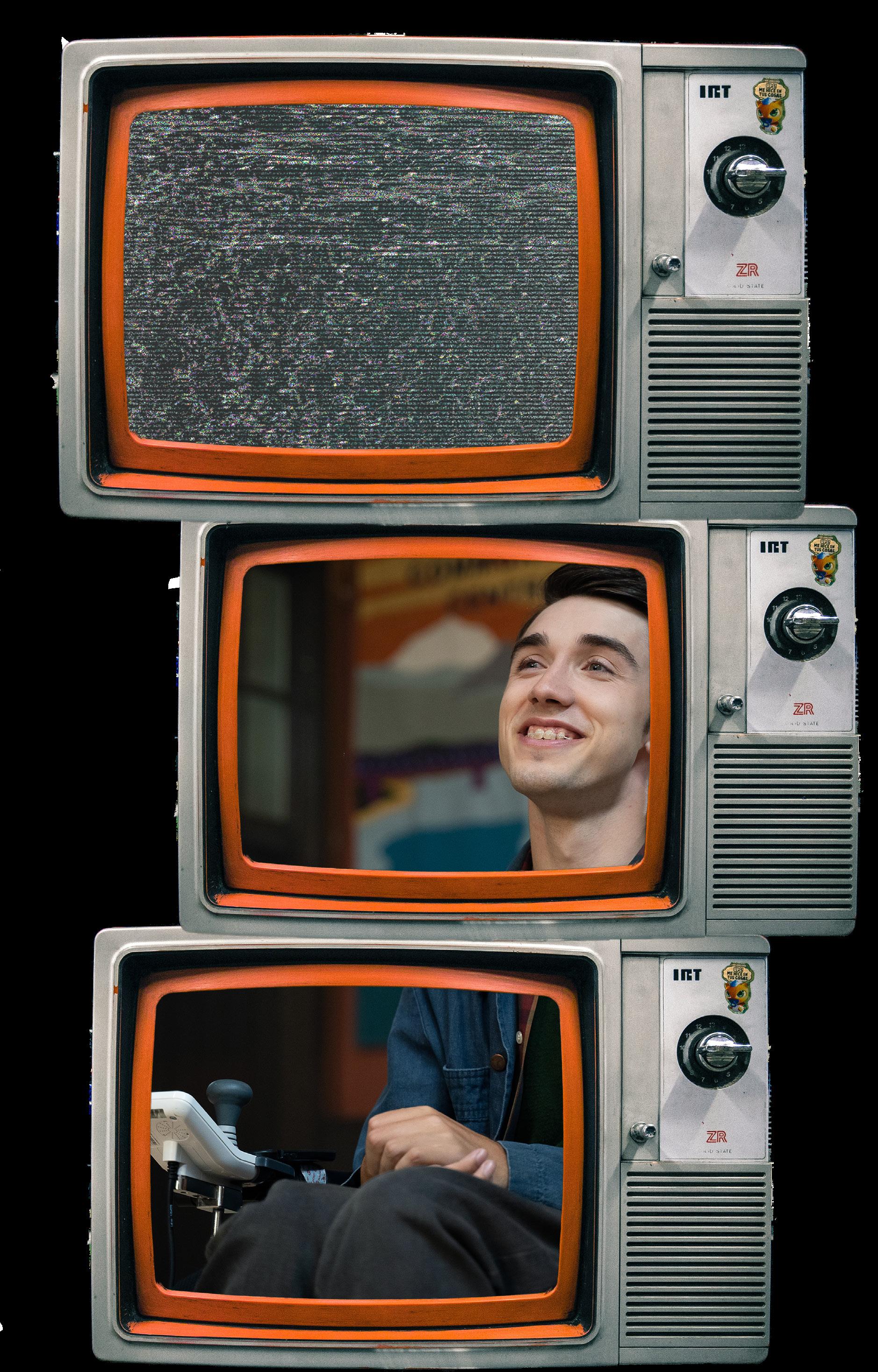
3 minute read
Bridging the Gap
By Sabrina stott
Disabled actors have always struggled to find jobs, but that’s slowly changing
Being an actor is notoriously difficult. It means rejection, lack of steady work, and having to be away from family and friends. For disabled actors, it’s worse, especially if they want to play characters whose struggles and stories reach beyond their disabilities.
These actors face challenges that able-bodied actors do not. According to the Ruderman Family Foundation (RFF), an advocacy organization, disabled people make up 20% of our population but represent less than 1% of TV characters. And when they are hired, they are often typecast as bitter characters whose only focus is their disability. Writers portray these characters by directly correlating having a disability with having an unpleasant and cruel demeanor, which is stereotypical and offensive.
George Robinson, a C4/C5 tetraplegic who plays Isaac on Sex Education, told me in an e-mail interview that “it’s very important that not every story featuring a person with a disability needs to be centered on an existential angst about their life as someone with a disability.” People with disabilities have complex, in-depth feelings, struggles, and experiences that don’t relate to their disability, and they should be portrayed as such on screen. And actors with disabilities are not asking for special treatment.
“People with disabilities are mothers and fathers, sons and daughters, wives and husbands,” he said. “They go through financial hardship, marital troubles, and everything else that people in the able-bodied community go through. I see absolutely no reason why, because of someone’s disability, they couldn’t play any sort of role.”
The RFF found that 95% of characters with disabilities are portrayed by able-bodied actors. This frustrates disabled actors because writers often don’t even consult people who actually suffer from the disability being portrayed.
“I suppose for me, personally, as I’m someone with a less wellknown disability, such as tetraplegia, rather than paraplegia, many of the roles about disability require the ability to perform intricate tasks with my hands—something that I struggle with,” Robinson said. “This is not necessarily the fault of the writers, but there seems to be a rather limited perception of what a disability is.” One example of this is the 2016 film Me Before You, where a quirky girl named Louisa Clark, played by Game of Thrones star Emilia Clarke, becomes a caregiver for a wealthy young man. The man is portrayed as bitter and rude due to his paralysis. They not only hired an able-bodied actor to play a paralyzed man, but also glorified the idea that another ablebodied person has to save the day in order for him to see a purpose in life.
These sorts of TV shows and movies aren’t new by any means. The protagonist in the police show Ironside, which ran from 1967 to 1975, was a paralyzed police inspector named Robert T. Ironside who was played by able-bodied actor Raymond Burr. This has been happening in the industry for so long that it’s become a regularity. In her 2021 directorial debut Music, the musician Sia cast Maddie Ziegler as a young woman on the autism spectrum. She faced backlash from many autistic actors and activists.
But signs of change include Robinson’s Sex Education character, Isaac, a mischievous, yet kind teenager whose struggles center on his blossoming feelings for his new neighbor Maeve.
“Using the example of Isaac, the writers and producers were really keen to involve me and create the character along with me to make sure they were portraying a proper character with a disability that felt real,” he says.
By writing the character of Isaac as a generally happy, funny person who happens to have a disability and allowing Robinson to help with the character, Sex Education has helped to pave the way for other shows.
Although Hollywood has a long way to go, popular studios are attempting to bridge the gap. Both CBS Entertainment and NBCUniversal have pledged to have disabled actors audition for all of their future productions. By doing this, they are leading the way for other studios to follow.
“There not only seems to be a movement towards casting people with disabilities,” Robinson says, “but also, that we are beginning to become more included in the conversations about the types of stories being told.”










